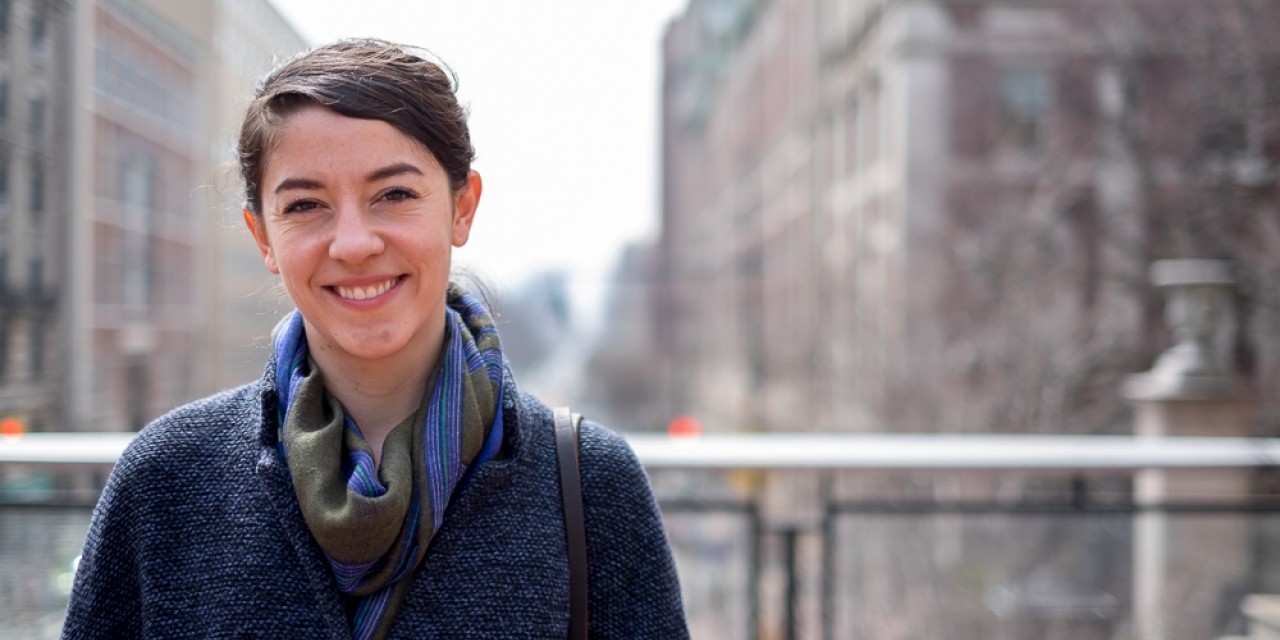Sophie Pinkham, PhD Candidate in Slavic Languages

Where did you grow up?
New York City.
What drew you to your field?
I became interested in Russian literature in high school, and began studying Russian in college. After I graduated, I went on an exchange program to work at the Red Cross in Siberia. I became fascinated by the subject of public health in the former Soviet Union, and worked in that field for several years. Eventually, I returned to my first love—literature—and entered the PhD program at Columbia.
How would you explain your current research to someone outside of your field?
I am researching the use of Russia's greatest cultural hero, the writer Alexander Pushkin, in evolving ideas of Russian national identity during the transition from communism. I am particularly interested in how a cultural hero can be used as a kind of bridge to reduce the sense of trauma and loss associated with major political and historical ruptures.
What is your favorite thing about being a student at Columbia GSAS?
The libraries. It gives me endless delight to know that I have access to almost any book on any topic in any language. I love to fall down research rabbit holes.
What resources or opportunities that Columbia provides have been most valuable to you?
I have especially enjoyed teaching, and getting to know some of Columbia's talented and diverse students. I may be biased, but I have the impression that the Slavic department attracts particularly exceptional undergraduates!
Is there a common misconception about a topic in your field that you wish you could correct?
Russians don't say “na zdorovie” (“to health”) when they toast—that means something more like “you're welcome” or “be my guest.”
What do you consider your greatest achievement?
Writing a book, Black Square: Adventures in Post-Soviet Ukraine. It came out in 2016.
Who are your favorite writers?
Turgenev, Babel, Venedikt Erofeev, Anna Akhmatova, Maupassant, George Eliot, Muriel Spark, Jane Bowles, W.G. Sebald, John Ashbery—and Pushkin, of course.
Who is your hero of fiction?
I find that heroes don't make the most lovable literary characters. My favorite literary character is Dorothea from George Eliot’s Middlemarch. I also love the protagonist of Muriel Spark's Loitering with Intent.
Who are your heroes in real life?
Anna Politkovskaya, the Russian journalist who was murdered because of her investigation of the war in Chechnya; Paul Farmer, an anthropologist and physician who founded the organization Partners in Health; and pretty much any major woman writer before 1970.
Whom in your field do you consider a role model?
Yuri Slezkine, the Russian historian. I admire his ability to use literary storytelling to convey historical research. And Cristina Vatulescu: her book Police Aesthetics: Literature, Film, and the Secret Police in Soviet Times was a genuinely thrilling study of the blurred line between fact and art.
If you were to die and come back as a person or a thing, what would it be?
A harp. Or maybe a horse.
What music have you been listening to lately?
Francoise Hardy, Eva Salina, and Brother Reverend.
What is your favorite blog or website?
sovietvisuals.com.
Where is your favorite place to eat on/around campus?
Awash, an Ethiopian restaurant.
